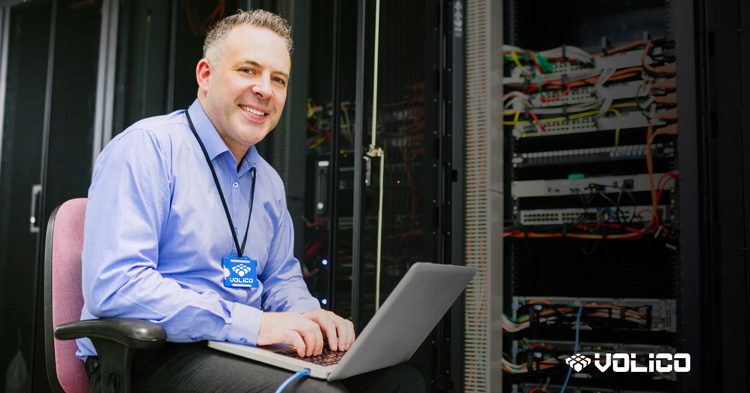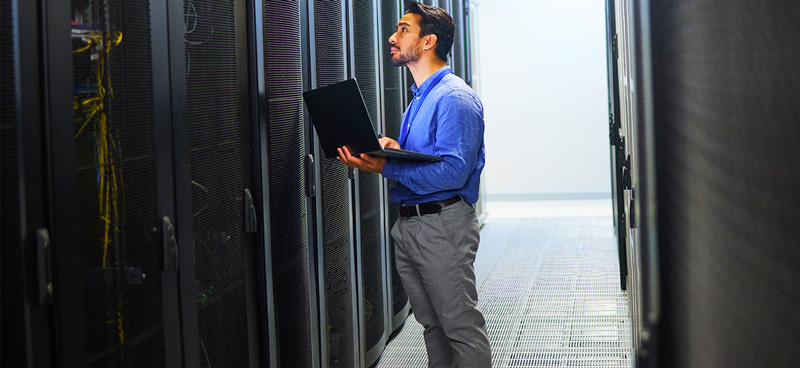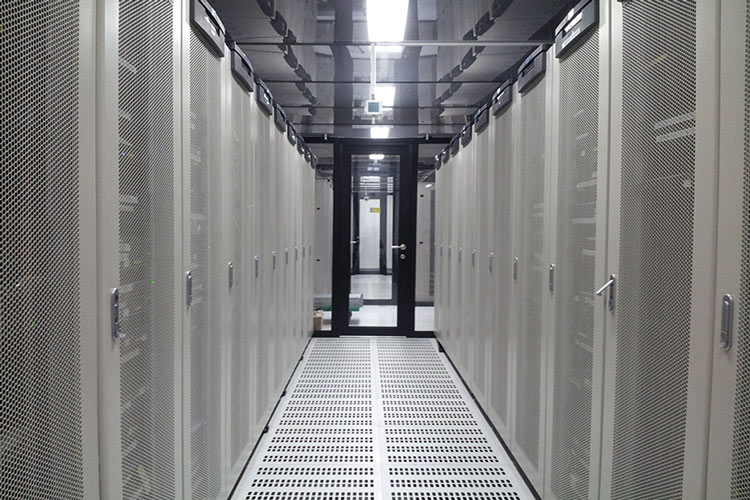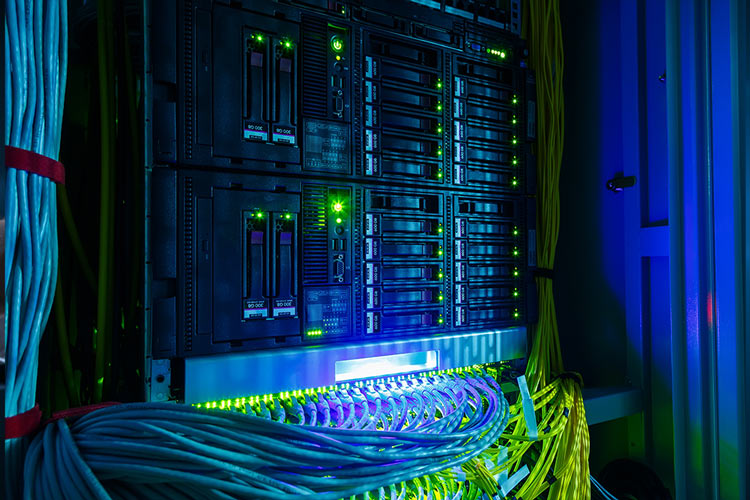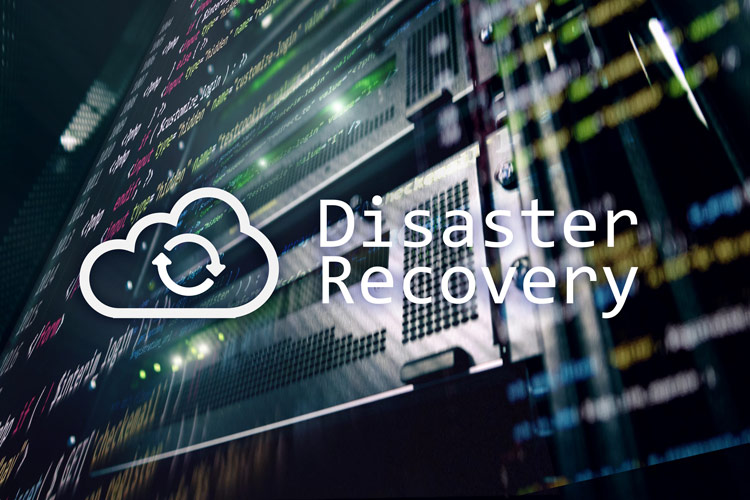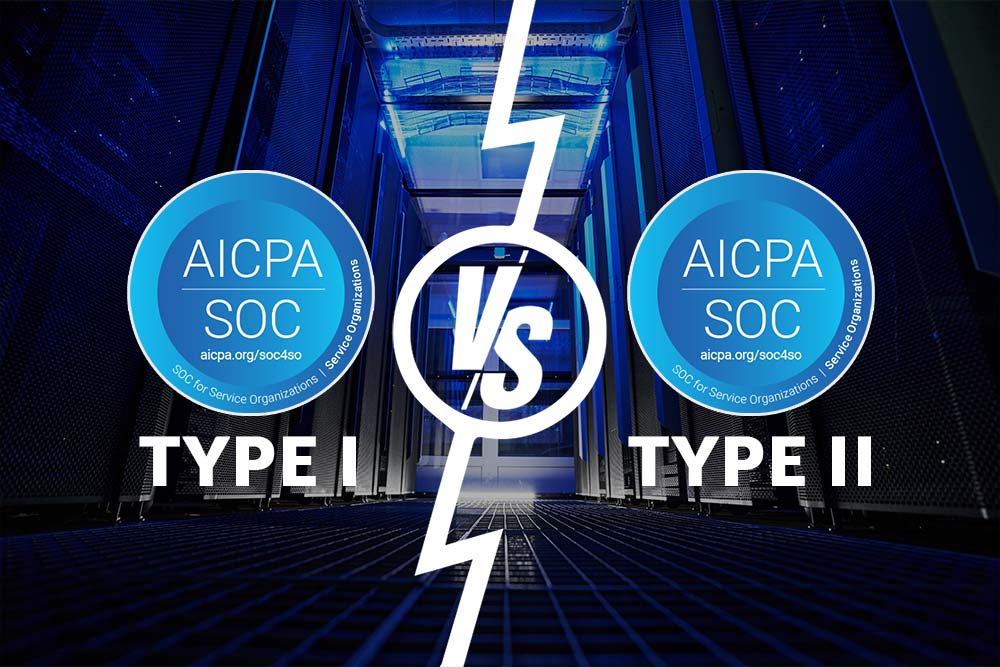For many businesses at the beginning of their journey, choosing between data center and server room options and determining which one would better suit their needs is like a Catch-22 scenario. However, knowing the pros and cons of each can make it easier to pick the one that’s most suitable for their needs.
Initially, before access to fast internet became the most natural thing in our lives, having an on-premises data center assumed a significant investment for those in need of the infrastructure. Those on-site server rooms had to be maintained by a dedicated team. They required a whole infrastructure to keep it up and running while also dealing with a higher risk of data loss.
In recent years, many things have changed in the world of technology, allowing for less resource-demanding alternative solutions. Better network and connectivity options and robust, safe data center infrastructures have been made available by operators, allowing businesses to leverage the advantages of increased performance, security, and managed services.
Every business needs a different approach to the data center and server room questions. This blog will look at the key differences, benefits, and main risks of each and hopefully help you address the dilemma with fresh insight. Let’s plunge in.
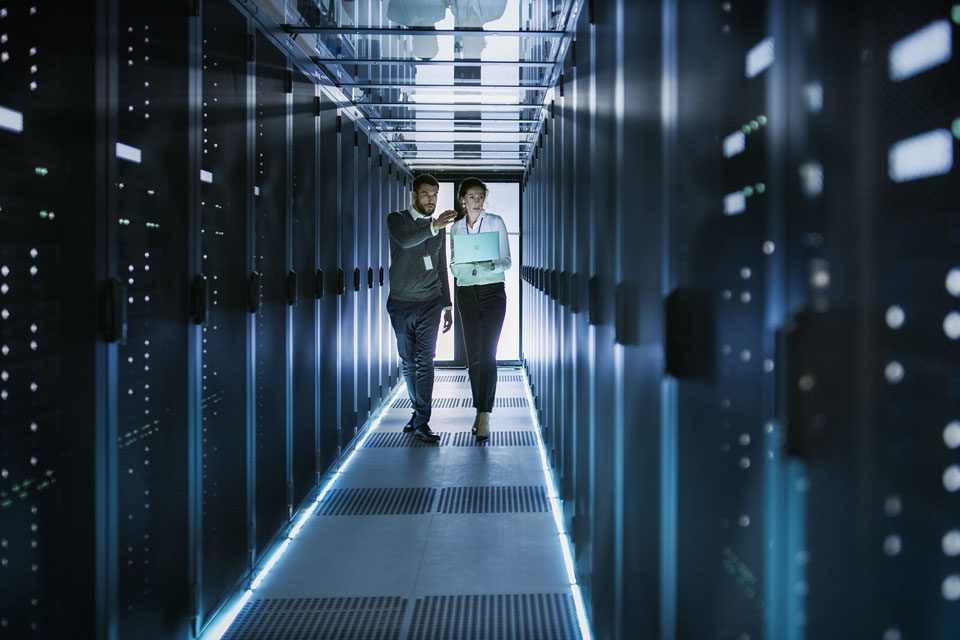
Key differences between data center and server room
Since we’re about to talk about data center and server room particularities, let’s take a few seconds and look at the main differences in general first, as it will help us understand each particularity better.
Range and scalability
The main difference between the two is that while a server room is a designated area located on-premise, a data center is a whole dedicated building designed to store and manage data most efficiently. Both data center and server room solutions have been invented to serve the same purpose of managing data. Still, server rooms are much smaller than a data center, and while a data center can accommodate thousands of servers, organizations operating with on-premise server rooms can face the challenge of scalability at a given moment.
Cooling
Smaller server rooms only use HVAC systems for cooling. Data centers operate with more progressive, efficient, and sustainable cooling systems. Liquid cooling and immersion cooling, often combined with other designs, make it measurably more effective and less resource-intensive than HVAC system cooling.
Security
Both a data center and server room can have efficient physical security protocols. However, a data center offers robust, multi-level security, with authentication points and several layers of security control for each cabinet. Data centers have security access logs and monitor everything within their perimeter. On-premises server rooms often need more robust security rules and infrastructure than a data center can offer.
Sustainability and energy-efficiency
Data center and server room infrastructures have huge differences concerning sustainability. The volumes of data keep growing at an unprecedented pace. Consequently, the need for performance and computing power to handle it is increasing. Data centers must look for ways to lower their energy consumption, and as a result, they are more likely to use sustainable solutions. On-premises server rooms usually need to be bigger for an extensive renewable power infrastructure to become relevant and worthy of investment.
Data center vs. server room: the advantages and the disadvantages
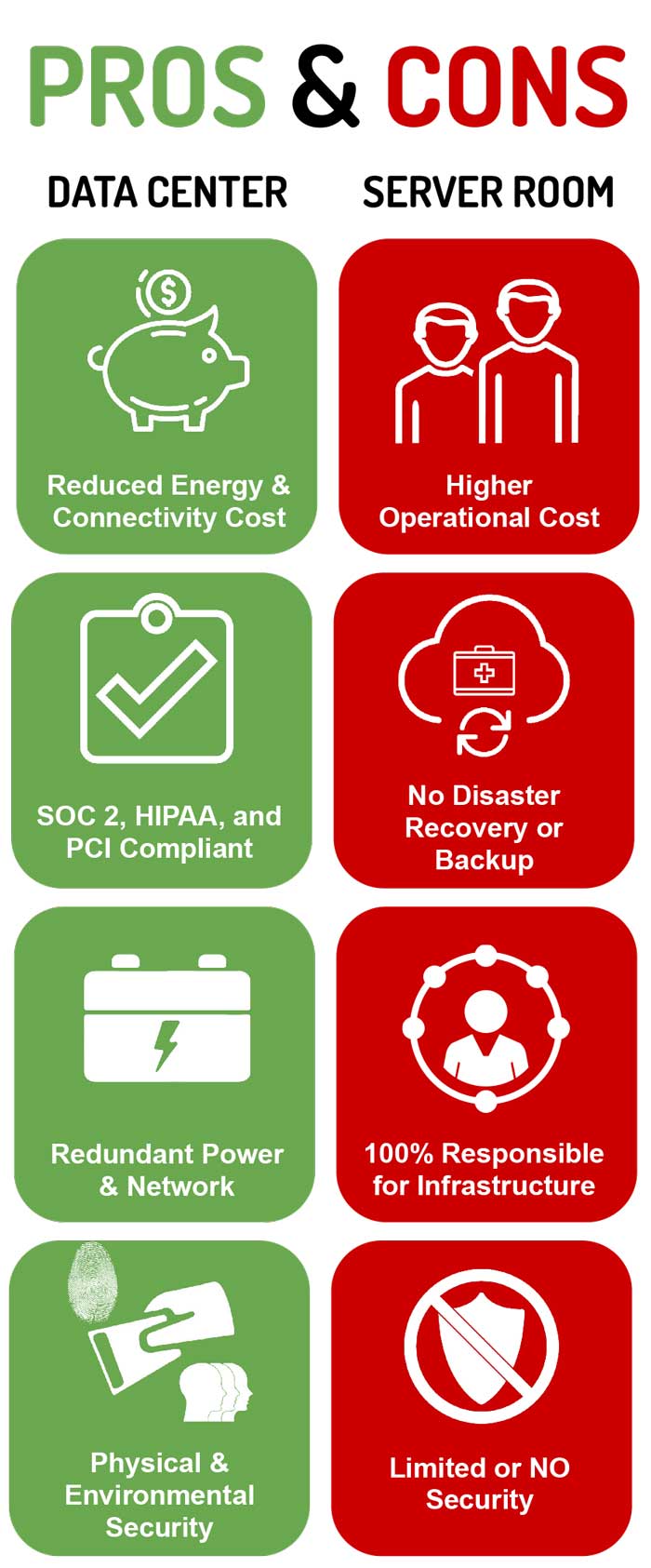 Let’s take a look at the key benefits and drawbacks of each.
Let’s take a look at the key benefits and drawbacks of each.
The advantages of server rooms
The data center and server room dilemma has a pivotal point: control. Owning your server room and having total control over what happens with your data may be the most significant advantage of an on-prem solution. You have the comfort of being able to access it quickly, whenever needed. You can also instantly make all the changes you need. Changes can be customized to your business’s particular needs at any moment. Having complete control over your system also allows for customized security solutions. Those can also be a significant advantage, depending on the specific circumstances.
The disadvantages of server rooms
As mentioned above, control is one of the core differences between the data center and server room. Owning your server room gives you complete control; however, it also gives you full responsibility.
The extra workload of managing a server room on-prem can strain your team. Issues can arise in the server room at any moment, drawing away the workforce from other tasks. Your business needs a team that can be redirected to handle the unexpected challenges of the server room infrastructure efficiently. Maintaining the health of the servers will be a priority. Members of your team will have to abandon other tasks from time to time to keep the server room running.
Scalability is essential for a business’s success. The possibility of expanding to new locations can be an important part of it. If you have a server room set up on-site but realize that you need to expand to further locations, it can become a hindrance. A colocation data center can be a better choice in the long run. Not only can it offer excellent connectivity and easy access to different locations, but it also has the advantage of scalability.
Also, setting up servers on-premises can be quite costly, considering that you have to buy all the components and set up everything on your own. Because of this, there’s much more room for human error in the configuration, leading to increased risks of data loss. Higher exposure to breaches, theft, fires, and floods can make deciding on the data center and server room dilemma somewhat easier, shifting the balance to the advantage of the data center.
The advantages of data centers
Businesses of all sizes need to be online to stay competitive and grow. Initially, most businesses relied on building their own online IT infrastructure by converting a spare room or space in their office or even their home into a “Server Room.”Although In-House Hosting provides the most hands-on control of your servers, it is usually at a higher cost and is less time-efficient.
Especially for businesses at the beginning of their development, an on-site server room can be a waste of time and resources. Server rooms come with maintenance and financial responsibilities, which can slow down the growth of a young business. On the other hand, data centers can offer solutions that lift the burden of costly data management. In most cases, businesses starting out can be perfectly efficient with a less resource-intensive virtual private server.
Managed services offered by data center operators can be an advantage that solves data center and server room-related dilemmas. Crossing data management responsibilities from the list is a winning argument for most businesses. This allows organizations to focus their energy on other, more critical areas, allowing for faster growth.
Additionally, security can be a decisive element for most businesses, and managing data on-prem is not always the most secure solution. The complexity of the task can often become too much to handle, leading to errors and exposing vulnerabilities. Also, the robust infrastructure of data centers offers multiple layers of backup. It can guarantee your data’s safety even during a power outage.
And lastly, data center designs are optimized for handling data with the highest possible efficiency. This allows them to offer better security, network access, and climate control. Data centers are also more sustainable and energy-efficient than an on-premise server room.
The disadvantages of data centers
Data center and server room solutions differ in many things. Entrusting the data center with security, maintenance, and ensuring uptime is one of the biggest disparities between the two. If you value full control over your equipment and data, a data center might not be the best choice for you.
Cost can also count as a disadvantage for the data center, considering the setup fees and deposits required in the beginning. After that, you pay monthly for the hosting, which can be higher or lower depending on bandwidth requirements, IPs, etc. However, choosing the right solution at the right moment can reduce the costs to a reasonable amount for the services received.
Also, it’s important to consider that no matter whether you choose to go with an in-house server stack or a data center, a certain amount of upfront costs will be present anyway. It’s important to consider your needs and choose a solution that you can fully take advantage of.
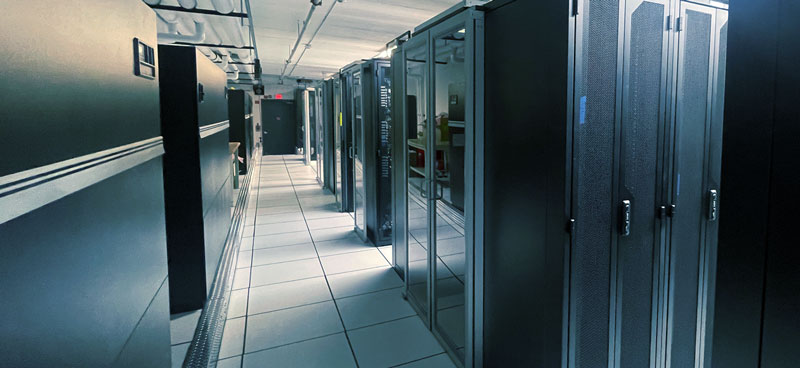
Server Room vs. Data Center: Which is Best for Your Business?
Looking at the advantages and disadvantages of the data center and server room, it’s easy to see that the data center is more complex from many points of view. Nevertheless, for some businesses, it can make sense to operate a server room on-premises. The needs of businesses can be very different, and it’s important to make a decision after weighing those options well.
For example, if your business needs only a few servers and you need the infrastructure close to your headquarters, an on-site server room can make sense.
However, if you have bigger server needs, a data center or colocation facility can be much more efficient. Also, if your business is in its beginning phase, a VPS can be more cost-effective than maintaining a server room on-premise or paying higher upfront costs for a colocation provider.
Data centers are specialized buildings created for the sole purpose of handling data in the most efficient way. Organizations sharing space in the data center share the resources of the building as well: housing, storage, support, and access to excellent quality hardware and networking infrastructure. Data centers are typically safer, more reliable, and more energy-efficient than managing a server room on-site.
Hopefully, looking at the advantages and disadvantages of data center and server room solutions helped clear up the fog around the two.
Which solution do you think would best suit your business?
If you’re interested in data center and server room solutions, contact us to discuss the details! Discover how Volico Data Centers can offer your organization robust, high-performance, redundant IT infrastructure and services that will help your business stay ahead of the competition.
• Call: (305) 735-8098
• Chat with a member of our team to discuss which solution best fits your needs.
